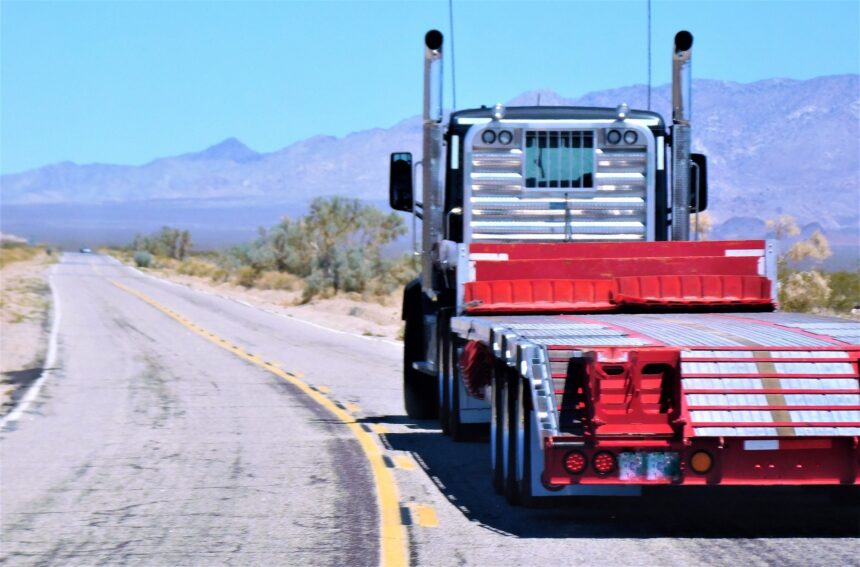Did you know that there is a business called cross-border e-commerce whose market is expanding all over the world?Cross-border EC refers to the business of offering products to people living in foreign countries through the use of the Internet.
Logistics issues are particularly important in cross-border EC. This is because cross-border EC is a business that cannot exist without logistics. Here, we will explain the characteristics of logistics in cross-border EC, the challenges unique to cross-border EC, and how to resolve these challenges.
目次
Introducing the 5 main challenges of cross-border EC

There are five main challenges in operating a cross-border EC business.
- Difficult to attract customers
- Different countries have different laws.
- Logistics Challenges
- Language barriers
- Market research is difficult
We will now discuss the above issues in more detail.
Difficult to attract customers
When developing a cross-border e-commerce business, you need to be creative in how you attract customers. This is because there are so many websites on the Internet, and competition is high.
Because of the high competition, it is difficult to get people to find your website on the Internet, and it is very difficult to attract customers.
There is also a need to compete with other registered vendors when using cross-border e-commerce platforms in the countries in which you do business.
Different countries have different laws.
Just as cultures and economic policies vary from country to country, so do laws.
In some countries, such as China and the U.S., where cross-border EC business is widespread, laws concerning cross-border EC have been established. In contrast, in developing countries where cross-border EC business is not well established, laws concerning cross-border EC are often not in place.
If laws related to cross-border EC are not in place, you should carefully check laws related to logistics and import/export.
Logistics Challenges
Logistics is always relevant when developing cross-border EC business. Without logistics, it is impossible to develop cross-border EC business.
So what are the logistical issues involved in developing a cross-border EC business? The logistical challenges are as follows.
- It takes a lot of time and effort to complete the procedures.
- Deliveries take time to complete.
- The number of products that can be imported and exported is limited.
From this point on, we will discuss the above issues in detail.
It takes a lot of time and effort to complete the procedures.
In doing logistics, it is necessary to import and export goods through customs. In doing so, it is time-consuming to fill out forms and other paperwork.
Although it is up to the hands, if the documents are not filled out properly at the time of import/export of goods, the goods will never reach the consumer. Therefore, it is necessary not to neglect filling out the documents.
Deliveries take time to complete.
Cross-border e-commerce businesses target overseas customers. As a result, the problem is that it takes a long time from the time a consumer orders a product to the time it arrives.
Delayed delivery of products can affect product reviews and lead to an increase in complaints.You will need to devise a way to reduce the delivery time from the time the product is ordered.
The number of products that can be imported and exported is limited.
The products that can be traded differ from country to country. For example, a product may be allowed to be sold or exported in Japan, but the import or sale of the product may be restricted in other countries.
Before selling a product, it is always necessary to confirm that the sale or importation of the product is not restricted.
Language barriers
When doing business overseas, the primary language of the country in which you operate is important. This is because the language of the country in which the business operates is necessary for product descriptions and site guidance.
Also, when we receive questions or complaints from consumers, we cannot respond if we do not understand the primary language.
Market research is difficult
In order to be highly successful in cross-border EC, you need to collect local information. When gathering local information, be sure to collect at least the following information
- Public demand
- trend
- Products in low supply
Since the major languages are different and products in high demand differ depending on the age group, we should gather information and conduct market research carefully.
Characteristics of logistics for cross-border EC

When operating a cross-border EC business, it is necessary to know the characteristics of overseas logistics. The characteristics of overseas logistics include the following
- Lead time varies from country to country.
- Mishandling of baggage
- There are customs procedures.
- Some countries offer preferential logistics for cross-border EC.
The above features will now be described in detail.
Lead time varies from country to country.
Lead time refers to the total time it takes for a product to reach its destination country. Therefore, the greater the distance, the longer the lead time. Be sure to check the lead time in advance.
It is also important to understand that lead times vary depending on the country situation and the shipping company used.
Mishandling of baggage
If you use international shipping, be aware that many areas of the world are notorious for handling packages in a messy manner. For example, there are impressive scenes of goods being tossed at airports.
Therefore, if you are selling fragile products, you must package them in a way that prevents damage to the products. In addition, be sure to add a notation such as “fragile” to the packaging method.
There are customs procedures.
When developing a business selling goods abroad, there is no way to avoid customs duties. Customs duties are processed every time you import or export goods.
If you repeatedly import and export goods in a row, the customs procedures may seem tedious. However, without customs procedures, goods cannot be delivered to consumers, so make sure to follow the procedures carefully.
Some countries give preferential treatment to cross-border EC.
Cross-border EC is a business with a growing market. Some countries support cross-border EC business. For example, China applies a reduced tax rate to cross-border EC products.
Keep in mind that it is also a plus to do business in countries that give preferential treatment to cross-border EC.
How to solve cross-border EC issues?

So far, we have introduced some specifics about the challenges of cross-border EC, but how can we solve them?
There are three main solutions to the challenges of cross-border EC.
- Hire an expert.
- Have a warehouse on site
- Utilize SNS
From here, the above solutions will be explained in detail.
Hire an expert.
If you have difficulty understanding the local law or language, consider hiring an expert in that area. For example, hire a local lawyer or interpreter.
Hiring a specialist reduces your workload and the risk of making mistakes. However, it is also necessary to acquire a certain level of knowledge before hiring a specialist. Therefore, you should acquire a variety of knowledge, including languages and laws.
Have a warehouse on site
If you have the assets to spare, consider owning a local warehouse. The advantages of having a local warehouse include the following
- Shorter delivery times.
- Able to store goods
- Reduce procedural hassles.
By reducing the delivery time of goods, you can improve your reputation with consumers. It also saves time and effort by allowing you to export large quantities of goods in a single procedure.
Given the above, owning a warehouse can solve a variety of problems.
Utilize SNS
Using social networking sites is an effective way to gather information and promote your company’s products.This is because social networking is a resource used by many people around the world.
In addition, by asking influencers and others active on social networking sites to promote your products, you can reach a large number of people.
In addition, through SNS, you can learn about local demand and trends while in Japan, so if you want to develop your cross-border EC business, it is essential to use major SNS locally.
summary
So far, in addition to the logistics features of cross-border EC, how about specific explanations of the challenges of cross-border EC and ways to solve those challenges?
Cross-border EC is a business that is attracting worldwide attention, and many people are now entering the cross-border EC business. However, there are many challenges involved in cross-border EC business, and these challenges must first be resolved.
In particular, it is effective to use social networking services that are popular in the country in order to make your company’s presence known; actively using social networking services to promote your company’s presence is important for cross-border e-commerce.
When entering the cross-border EC business, be proactive in utilizing SNS.


















